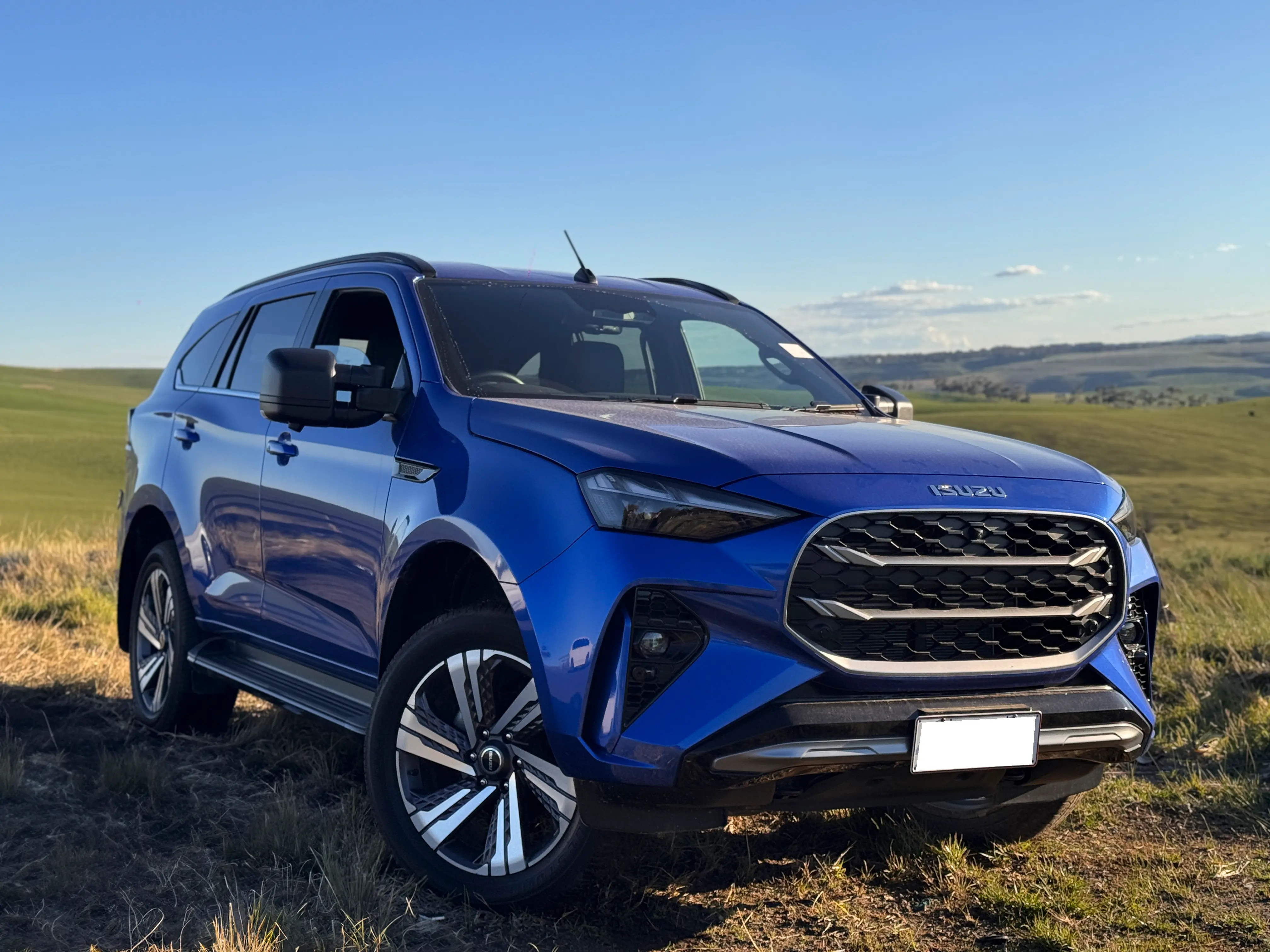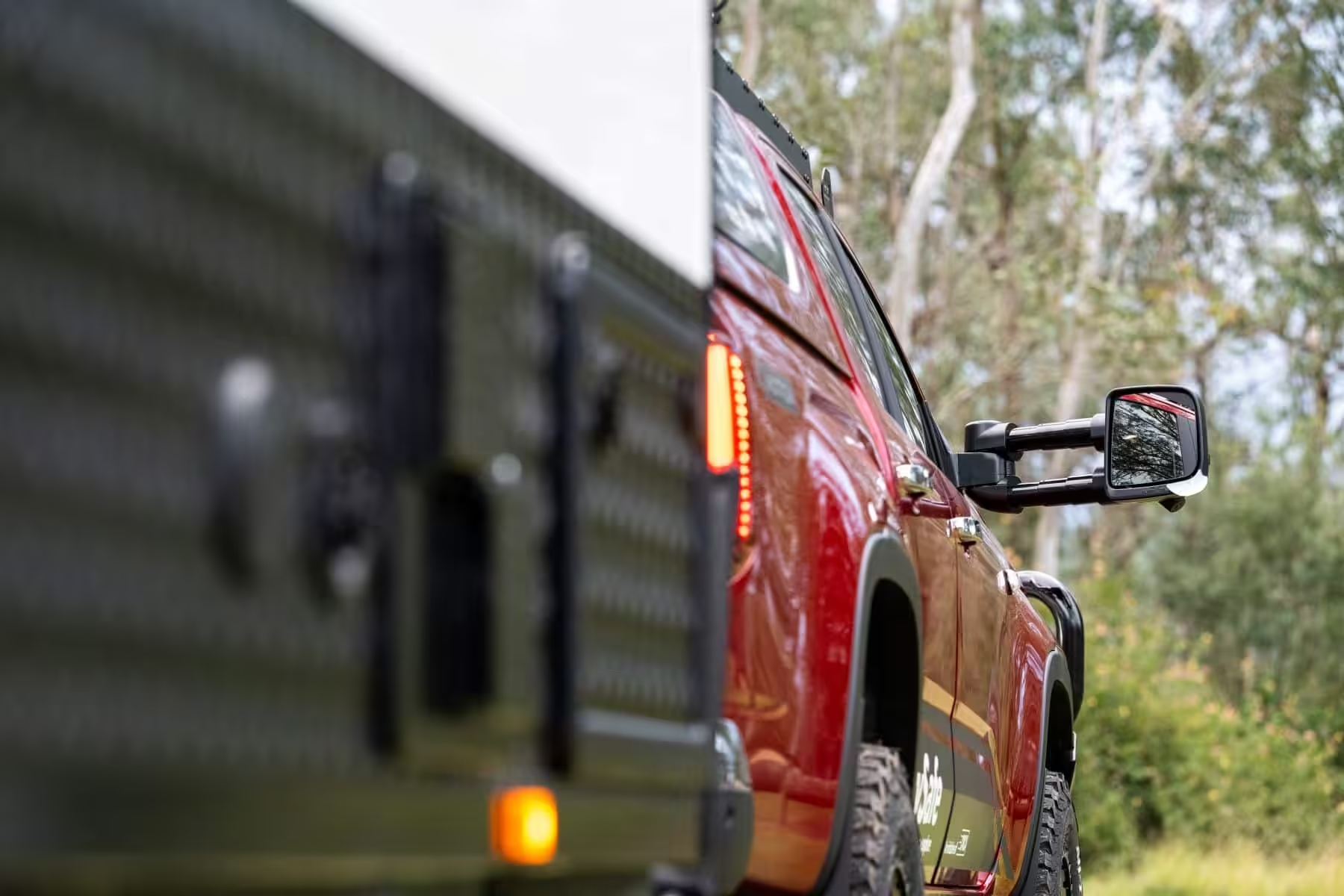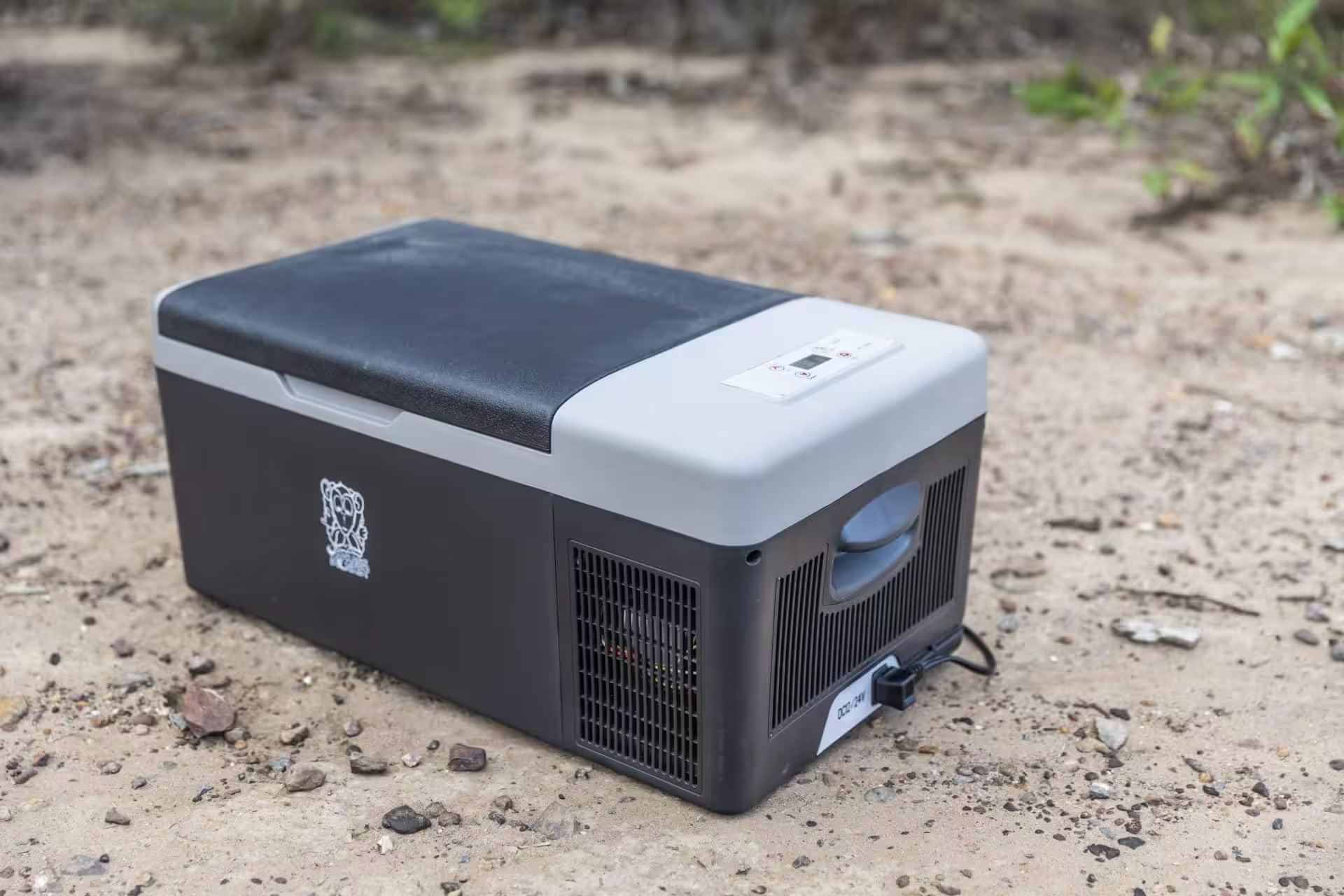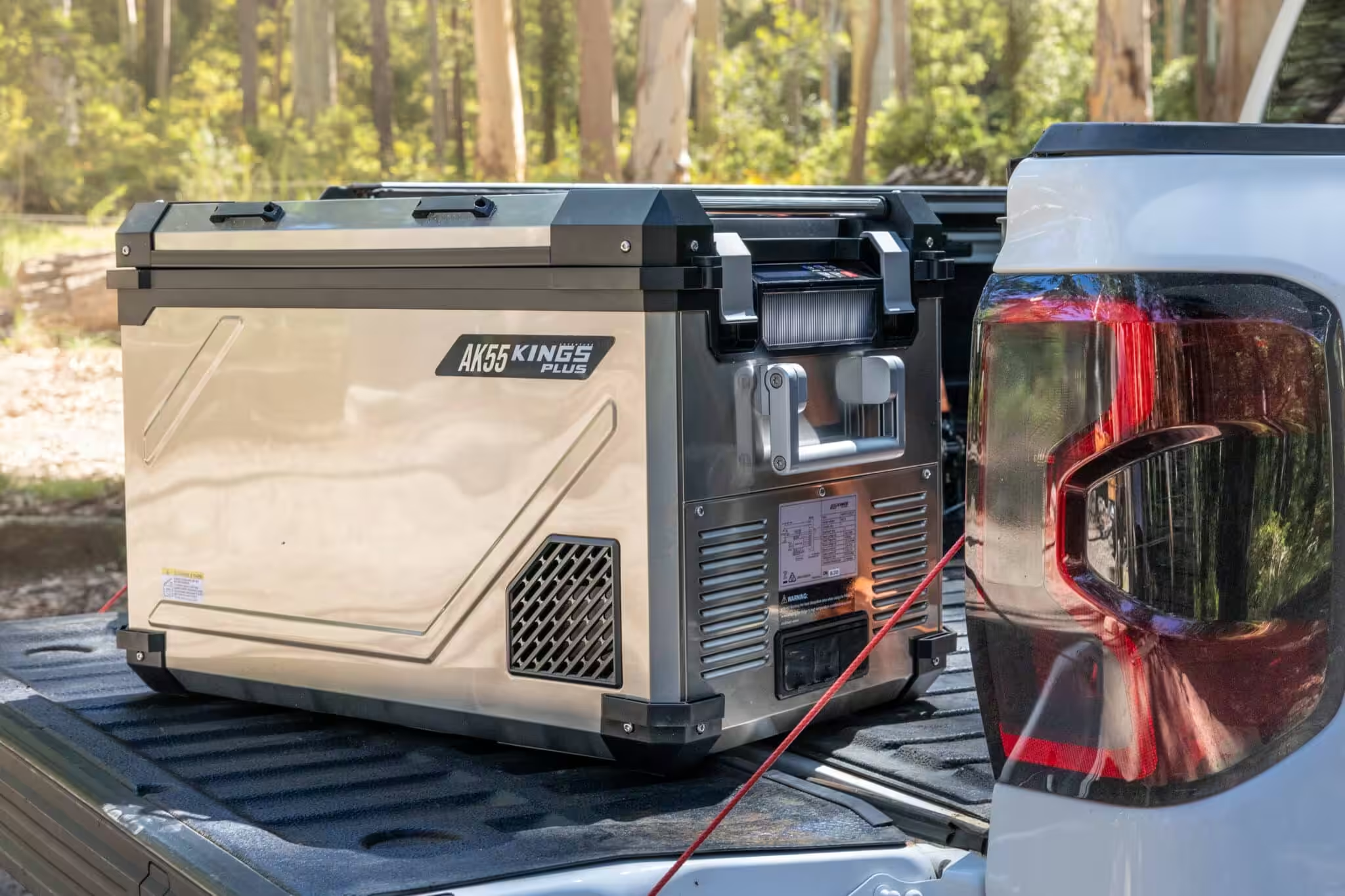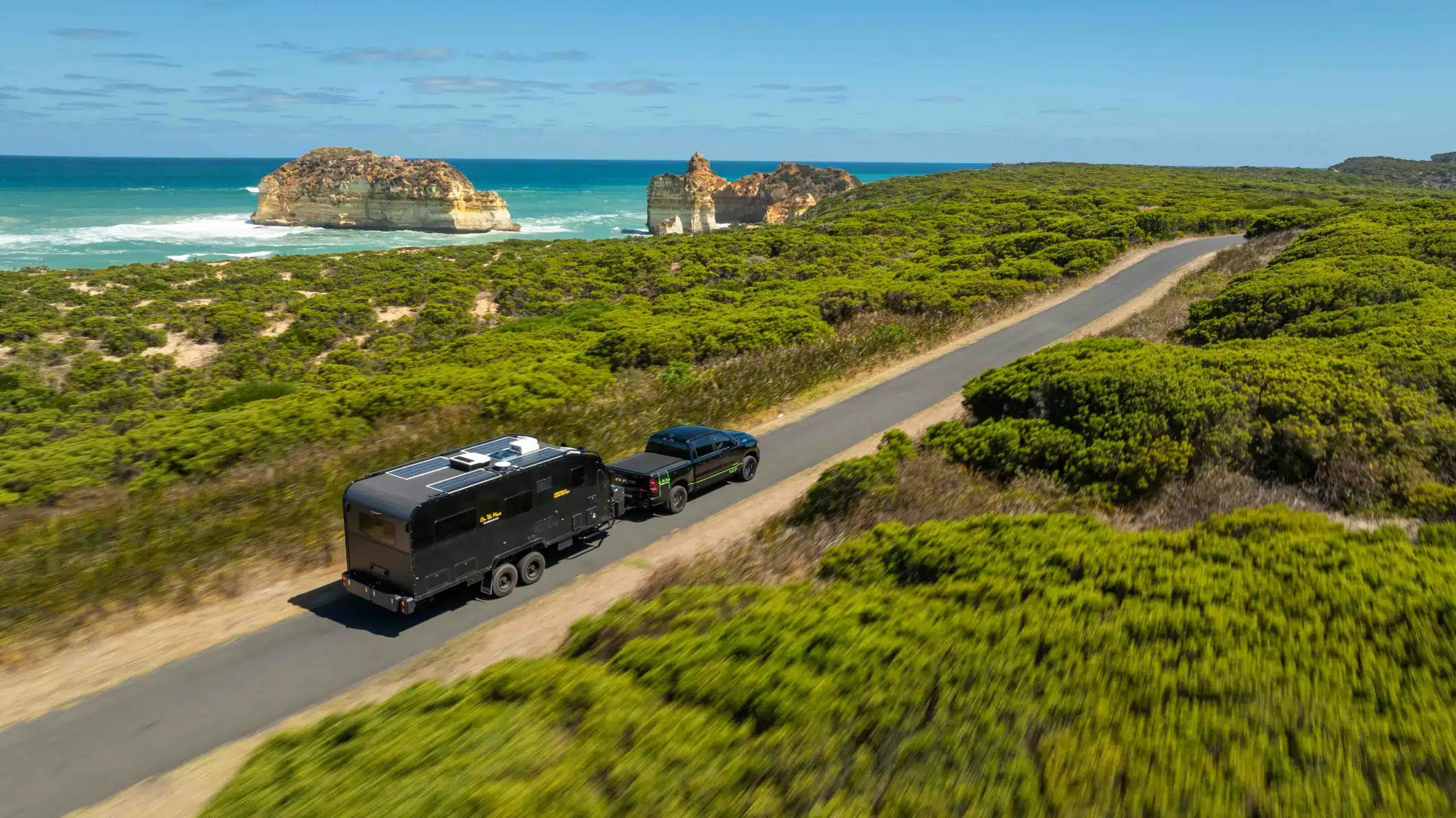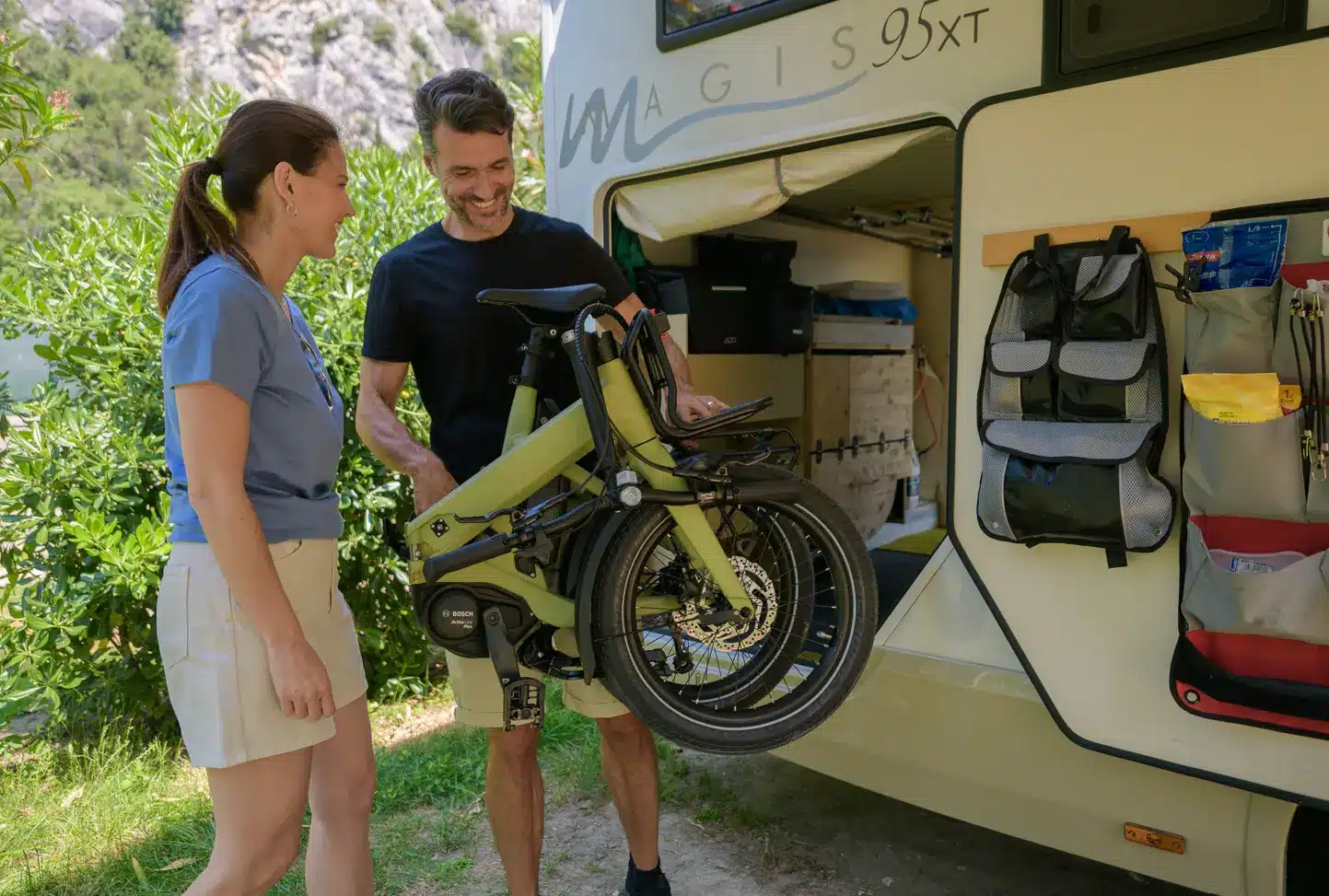
We reviewed the McHitch Uniglide Trailer Coupling – does it make hitching, unhitching, and towing easier? Check out how it went here.
Hitching and unhitching the van can be such a fraught procedure. After reversing the tow rig, it’s probably the next significant item on the pending divorce papers. Even seasoned pros can have their off days. UHFs, well-practiced hand signals, or a reversing camera can be undone with one more comment about, “just a bit more,” or “you’ve still got half a metre, do you want me to have a go?” It needn’t be that way.
A few years ago, we had the bigger RAM 2500, taller than the 1500 versions we were using for Foodie Trails. Waiting at Ezytrail Penrith to collect the Parkes 18 model, I suddenly realized the height disparity between the towbar on the car and the van’s drawbar. It was about four or more inches. To try to join the two would have been both ridiculous and dangerous. So I had to go and buy a drop tongue to get the hitch up a level.



Enter the McHitch Uniglide trailer auto coupling
When the Foodie Trails series was locked into towing with a RAM 1500 and Ezytrail combination again, I thought we might need to address this possible problem from the outset. A few phone calls later, and we had secured the use of the McHitch Uniglide trailer auto coupling. We had explained our requirements to Joe McGinnes, the McHitch’s developer, who has sadly, since passed away. He told us to visit with the RAM/Ezytrail set-up, and he’d make sure that our drawbar was level from the get-go.
We have prepared a whole story on why it’s essential to make sure this vital area of the tow rig is level, here.
Firstly, the RAM 1500 is nowhere near as high as the 2500. So we used one of Joe’s two-inch inverted forged drop tongues. Joe then fitted the McHitch receiver to that. It’s a different and larger unit than a tow ball or pin. It becomes evident why when you get to hitching up.
The factory hitch on the Ezytrail was removed, and the McHitch coupling bolted down in its stead. The whole kit comes with a handbrake too. However, our drawbar frame meant we didn’t have time to re-work the fittings to make it happen.
Even though the vans we would be using were well under a 3500kg rating, we opted to use the 4500kg McHitch coupling to satisfy Joe. This was given the forces involved with a large tow vehicle. McHitch makes couplings up to a six-tonne rating. All are compatible with a weight-distribution system if you end up using one on your rig.

How to know when you’re level
To know when you’re level or at the right height for hitching on level ground, mark your jockey wheel leg with a marker when first coupled. This will speed up the process.
However, for uneven surfaces to unhitch, Joe showed me a neat little trick. As you’re winding the jockey wheel, keep a finger or two on the tow tongue where it enters the receiver on the tow vehicle. You will feel the weight lift off the car as the hitch goes through the rise. This is again a time saver. It’s relevant because the McHitch separates differently than a tow ball or pin device.

Hitching
The coupling pin is effectively locked into the receiver. As you reverse, the wide plated area around the receiver’s opening is somewhat forgiving. Once you push it home, the locking lever at the back of the receiver is secured by a pin. This pin slides into place to hold it down. You then slide a hitch pin that passes through the main coupling shaft and lock that with an R-clip. So that’s three methods of security.
Unhitching
As mentioned before, there are two ways of knowing the best height to release the coupling’s handle. Once the van weight is off the tow vehicle, you can push in the locking pin, raise the handle and take out the R-clip and hitch pin. Drive forward. It’s simple.


The verdict
The most significant advantage of the McHitch Uniglide auto trailer coupling is its precise nature. The large receiver collar helps you slip it on. If you have a reversing camera, using a magnetic yellow guide (if you’re by yourself) makes lining up easy. Additionally, the lock-on is automatic. Therefore, you don’t have to get out and lower the van onto a ball or pin.
In use, and we have now towed thousands of kilometres with a roughly three-tonne load all over New South Wales and Queensland, it’s smoother and quieter towing. There has been no shunting or banging and clattering that you get with a tow ball. The positive locking makes a world of difference.

The prototype coupling was derived via a LandCruiser Universal Joint, hence the Uniglide name. Indeed, it’s still a UJ from that vehicle. It offers superb articulation on all axes.
The McHitch Uniglide auto trailer coupling we have used has boosted towing confidence and improved our experience along the way. With one less thing to worry about, we can enjoy the drive even more.
For information visit: mchitch.com.au.
Words by Tim Scott. Images by Tim Scott and Tess Waldron.


